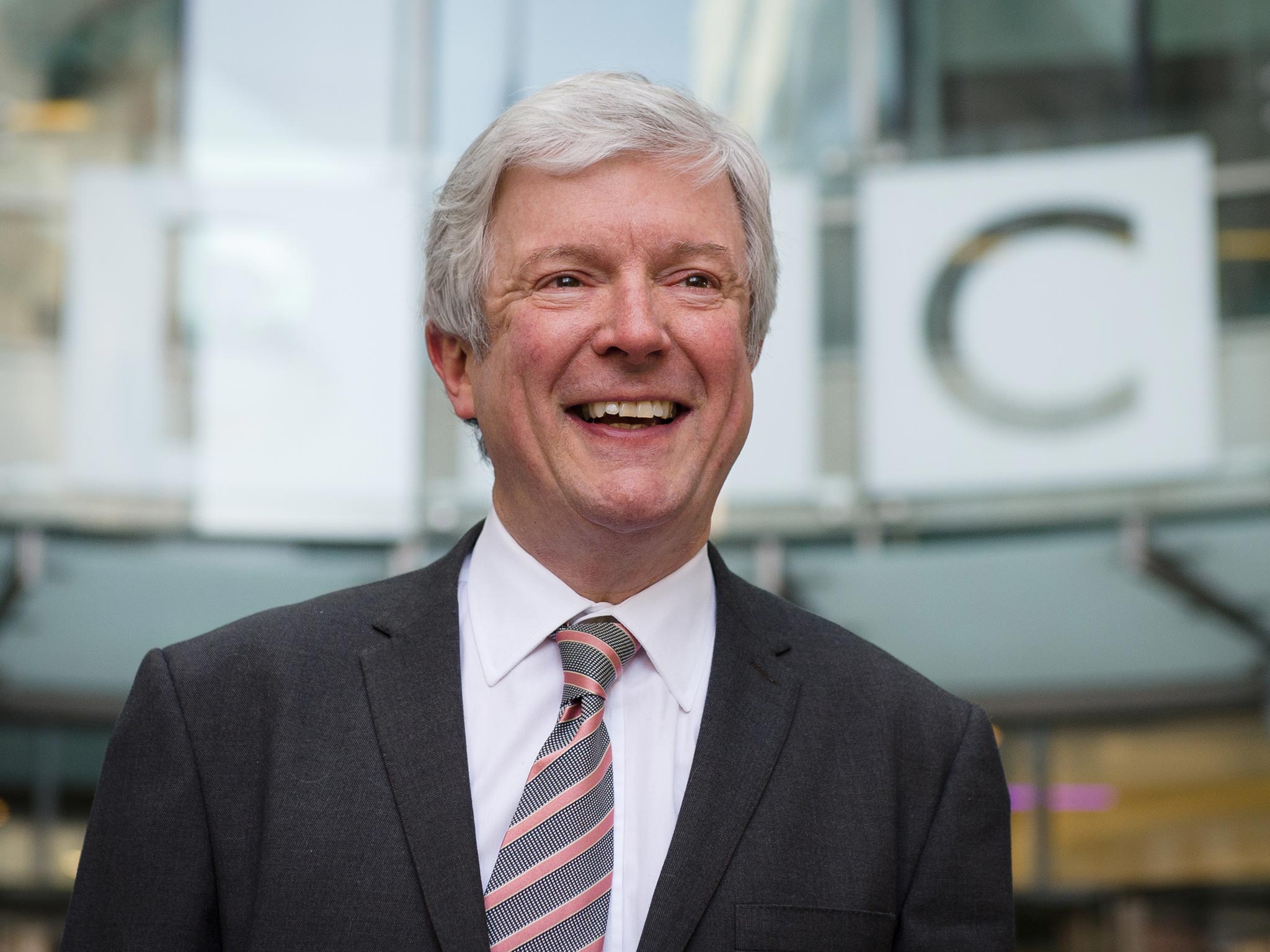BBC chief Lord Hall promises to do more to celebrate women
Director General promises action after he was advised that 15 out of the 18 publicity images in the lobby of the BBC’s £1bn headquarters featured men

Your support helps us to tell the story
From reproductive rights to climate change to Big Tech, The Independent is on the ground when the story is developing. Whether it's investigating the financials of Elon Musk's pro-Trump PAC or producing our latest documentary, 'The A Word', which shines a light on the American women fighting for reproductive rights, we know how important it is to parse out the facts from the messaging.
At such a critical moment in US history, we need reporters on the ground. Your donation allows us to keep sending journalists to speak to both sides of the story.
The Independent is trusted by Americans across the entire political spectrum. And unlike many other quality news outlets, we choose not to lock Americans out of our reporting and analysis with paywalls. We believe quality journalism should be available to everyone, paid for by those who can afford it.
Your support makes all the difference.Lord Hall, the BBC Director General, has promised to do more to celebrate the contribution of women at the BBC after complaints that the organisation prefers to promote its male presenters.
The Director General promised action after he was advised that 15 out of the 18 publicity images in the lobby of the BBC’s £1 billion New Broadcasting House headquarters featured men. “The balance is not right and it doesn’t reflect the vitally important contribution of women to the BBC,” Lord Hall said in an emailed response to a complainant.
By today, a spot-check of the images in the lobby area – familiar to viewers of the BBC’s recent satirical comedy W1A – showed that the imbalance had been substantially corrected.
Strictly Come Dancing presenter Tess Daly was one of seven women on show, alongside 11 men and a Dalek. “The reception area is a shop window for the BBC. Tony agreed that the publicity needed to better reflect our programmes, so changes are being made.”
The other two women in pride of place in the main lobby were not exactly BBC regulars but the singers Emile Sande and Annie Lennox, who have both recorded music sessions for the Corporation. Outside the nearby Radio Theatre, the BBC was championing its newly married Radio 4 presenter Sandi Toksvig, Absolutely Fabulous stars Jennifer Saunders and Joanna Lumley, and another singer, Paloma Faith.
Lord Hall is determined to introduce cultural change at the BBC and recently decided to scrap the tradition of commissioning painted portraits of its Directors General following criticism that £20,000 of licence fee payers’ money was spent on an image of recent incumbent Mark Thompson. The tradition of painting the DGs only enhanced the notion that the BBC is a patriarchy – none of the 16 people who have held the BBC’s most senior post have been women.
Tackling sex discrimination has been near the top of Lord Hall’s inbox since he became Director General in April last year in the wake of allegations arising from the Savile scandal that sexual abuse and harassment had taken place over many years on BBC premises.
Chris Curtis, editor of Broadcast magazine, said: “This is making small steps but they are giving the message to BBC staff that the DG is serious about changing the culture and that permeates down and can make a difference.”
Early in his time as Director General he clashed with the then Culture Secretary Maria Miller in an exchange of letters over comments made by presenter John Inverdale on the appearance of Wimbledon champion Marion Bartoli. While agreeing that the comments were “totally unacceptable” he reminded Ms Miller that the BBC had put in place measures to increase coverage of women’s sport and was conducting a Respect at Work Review to improve working conditions for female staff.
Lord Hall’s comments come in the same week that BBC Radio 4’s Woman’s Hour announced its annual Power List, nominating the ten women who have been the biggest “game changers” in improving British society. The list, headed by Baroness Doreen Lawrence, included Laura Bates, founder of the Everyday Sexism project, and Julie Bentley, chief executive of Girlguiding.
Join our commenting forum
Join thought-provoking conversations, follow other Independent readers and see their replies
Comments